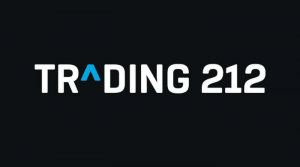SWIFT threatens to block Israel, Russia and Iran, potentially affecting FX vendors & brokers. Is Blockchain the answer?
With a large number of FX technology vendors, platform providers and retail FX brokers operating from within Israel to serve a global audience, reliance on online bank transfers in order to deposit funds to trading accounts is vital. Whilst Israel is an epicenter of large scale FX enterprises which serve an international client base and […]

With a large number of FX technology vendors, platform providers and retail FX brokers operating from within Israel to serve a global audience, reliance on online bank transfers in order to deposit funds to trading accounts is vital.
Whilst Israel is an epicenter of large scale FX enterprises which serve an international client base and have subsidiaries in other FX industry hubs such as Cyprus or Britain, Russia is a target market for many of the retail firms based in exactly those locations.
Imagine, in that case, if the ability to transfer operating capital and customer funds between those regions was all of a sudden curtailed. This is now looking very likely as SWIFT, which stands for Society for Worldwide Interbank Financial Telecommunication and is only network in the world which facilitates interbank transfers on an international basis, is considering removing Israel, Russia and Iran from its network.

This is not the first time that the subject of blocking Israel and Russia has come up. In October last year, Belgium-based SWIFT and its stakeholders had reported that individual acts of pressure had been lodged with the organization to block the two nations, as part of an attempt to impose sanctions on both nations.
At that time, SWIFT rejected all of the calls to remove the two nations from the network, however this has now reared its head once again.
The disruption to the FX industry would be large.. Or would it?
Jon Matonis, Founding Director of the Bitcoin Foundation highlights this as one of the exact reasons as to why Blockchain technology is being invested in by venture capital firms to the tune of such vast sums, and as to why ecommerce businesses and electronic banking providers are displaying such interest.
Today, bolstering Mr. Matonis’ point of view, 21Inc, a company which received a record $120 million of venture capital funding earlier this year, has said exactly this.
“The technology is ultimately just a tool. Our long term goal is to return economic power to the individual”
Blockchain is inseparable from Bitcoin itself, however in New York earlier this year, FinanceFeeds CEO Andrew Saks-McLeod met with some of the leaders of the Bitcoin industry including Coinsetter CEO Jaron Lukasiewicz, who explained that the inseperability of Blockchain from Bitcoin is largely academic – its the Blockchain technology that every industy wants to adapt for other large scale commercial purposes including transaction security, storage of financial transaction data and wired funds, and making transactions between banks.
There you have it – the peer to peer answer to public or government discourse.
Mr. Matonis yesterday stated that
Evolving towards a bank-wide standard for blockchain appears to be a replication of how Swift came into being; Visa did the same thing on the retail payments and was originally a bank-owned network.
If they are going to experiment on this stuff it makes sense for each one of the banks to pay one ninth of the cost instead of the full cost. That’s where the true cost savings are?
Some critics take an extreme view that all private blockchains are creating is another MySQL or shared database.
Many fintech executives mistakenly view private blockchains as off-the-shelf products whereas they are rather ‘byproducts’ of a highly-valued native token with massive network effect – bitcoin. Bitcoin is not created to get more chain. The blockchain is created to get more coin.
This may be more complicated in Russia, as the Russian government has publicly displayed its disdain for the use of Bitcoin and any underlying technology, however it has little jurisdiction over a peer-to-peer, decentralized, international medium other than by blocking ISPs which use it, which is not practical and would damage the economy. Even China, whose government monitors every transaction made by every citizen and company across all networks, does not take any action against Bitcoin users, despite China being a nation with strict capital control and information sharing laws.
In Israel, the high-technology powerhouse for the majority of the world, a nation in which innovation is encouraged and several very successful large firms have risen to the very upper echelons of technological leadership such as Wix, Viber, Gett and Waze just recently, the adaptation of peer to peer payment technology would doubtless be very straightforward. It was at Google Campus in Tel Aviv that Andrew Saks-McLeod witnessed the development of one of the world’s first cardless Bitcoin ATM central processing units, long before commercial, mass produced units existed.
If the vast FX industry that hosts its services from Israel is that dependent on such a method of transaction processing, yet those of a disruptive political persuasion manage to cause SWIFT to cave in to their dubious demands, Blockchain could indeed step in.
Featured image courtesy of Deloitte









